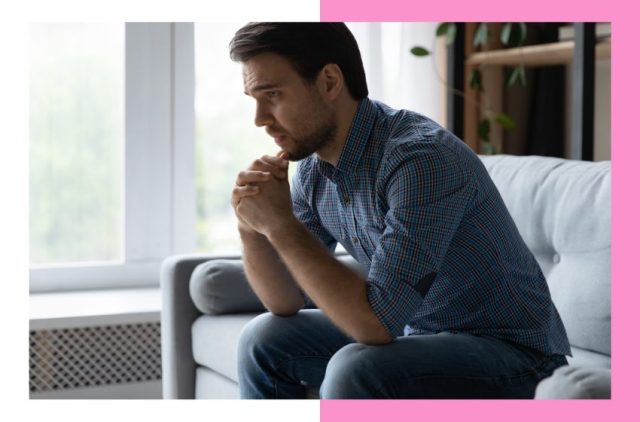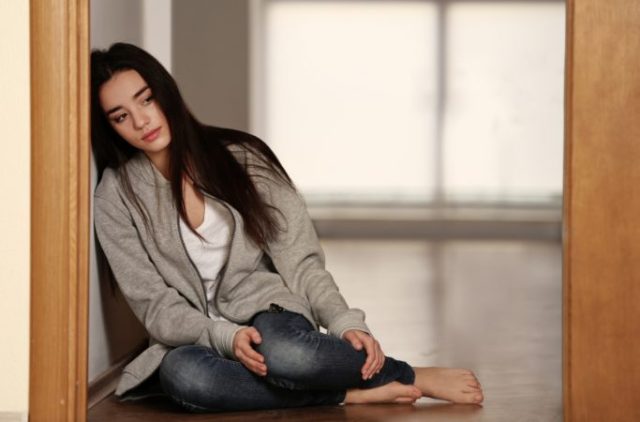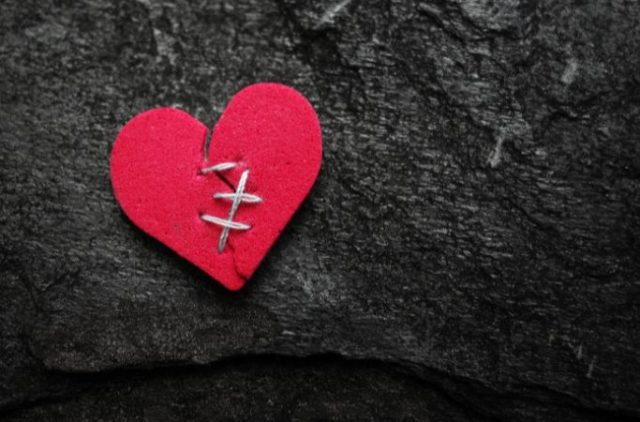Coping with Relationship Grief and Loss
By Jordan Blake
January 5, 2025 • Fact checked by Dumb Little Man

Coping with relationship grief and loss is a journey that many face at some point in their lives. Whether it's the end of a romantic relationship, the loss of a best friend, or a change in family dynamics, the impact of such losses can be profound and far-reaching. This article delves into the grieving process and offers insights into the healing process. We'll explore effective strategies to cope with the pain, the importance of moving forward, and how to rebuild your life in the aftermath of a relationship ending.
The journey through relationship grief involves navigating a range of emotions — from sadness to anger, and from confusion to hope. Understanding these feelings as a normal part of the process is vital for mental health and wellbeing. By acknowledging these emotions and learning how to deal with them constructively, individuals can find a path to heal and eventually foster new relationships and hopes for the future.
Understanding Relationship Grief

Relationship grief is an intense emotional experience that many encounter following the end of a significant connection. It encompasses a variety of situations, including the dissolution of romantic relationships, the parting with a best friend, or conflicts with family members. The grieving process is an integral, natural response to these kinds of losses. It is typical to confront a spectrum of painful feelings in the aftermath of a relationship ending, signaling a period of adjustment and reflection.
This emotional journey is marked by a process that is both personal and universal. While the experience of relationship grief is unique to each individual, the emotions it evokes — such as sadness, confusion, and longing — are universally understood. Acknowledging these feelings as part of the healing process is crucial. It allows individuals to navigate through their grief with self-compassion and the eventual hope of moving forward to a renewed sense of normalcy and wellbeing.
Also Read: How to Handle Difficult Situations In Life
The Grieving Process: Navigating Through Pain
Grieving a relationship often mirrors the emotional intensity experienced in grieving a death. This grief process encompasses a wide spectrum of emotions, ranging from sadness to anger. Understanding that feelings of being lost, confused, or in pain are normal and integral components of the healing process is crucial for anyone going through such a transition. Recognizing and accepting these emotions is a key step in navigating the path towards recovery and emotional well-being.
In the midst of this challenging time, it's important to allow oneself moments of sadness, acknowledging that it is a valid and necessary part of the process. Even dedicating a few minutes each day to consciously feel sad can be a therapeutic practice. This self-permission to grieve is essential in moving through the pain towards eventual healing and growth, redefining one's sense of normalcy after a significant relationship ends.
Moving Forward

Healing after a breakup signifies a pivotal shift towards moving forward in life, embarking on a journey without the presence of a former partner. This transformative phase often involves the creation of new memories with trusted friends and family members, signifying a renaissance of personal connections and shared experiences. Equally, it might entail a period of solitude, providing the opportunity to embrace and appreciate the independence of single life, which can be a crucial step before contemplating the prospects of a next relationship.
This healing journey is not just about overcoming the loss but also about rediscovering oneself and redefining personal happiness and goals. It's a time for individuals to explore new interests, revisit old hobbies, and strengthen bonds with loved ones, all of which contribute to building a fulfilling life post-breakup. Embracing this period of transformation can pave the way to personal growth, resilience, and readiness for future romantic relationships.
Coping Strategies for Relationship Loss
- Allow Yourself to Grieve: Grieving is a most important thing to do after losing a significant person in your life. Cope with your grief by allowing yourself to feel all the emotions, whether it's sadness, anger, or confusion.
- Talk About Your Feelings: Don't hesitate to talk about your feelings with a trusted friend or family member. Sharing your experiences can help you deal with the pain and feel less alone.
- Create New Memories: One way to cope with loss is to create new memories. This can be with friends, family, or even on your own. Engaging in new activities can help shift your focus from the past to the future.
- Seek Professional Help: If you find the grieving process overwhelming, it may be beneficial to seek mental health support. A therapist can provide strategies to deal with grief and help you move forward.
The Role of Time in Healing

Time plays an indispensable role in the healing process following the end of a relationship. It's vital to acknowledge that the journey towards feeling better is not instantaneous; healing is not a sprint, but a marathon. The notion that it might take a little while to recover should be embraced, as healing is a gradual progression. Over time, the acute intensity of the pain begins to diminish, making it increasingly possible to accept the loss and gradually shift the gaze towards what lies ahead.
This period of transition allows individuals to process their emotions, learn from their experiences, and eventually find a renewed sense of optimism and hope. The passage of time brings clarity and perspective, helping to understand the end of a relationship not just as a loss, but as an opportunity for growth and new beginnings. With each passing day, the ability to look forward to the future becomes more tangible, paving the way for healing and the possibility of new joys and relationships.
Rebuilding and Looking to the Future

Once the healing process begins, it's crucial to start looking forward. This phase doesn't imply erasing the past or the shared dreams with your ex-partner; rather, it signifies a transition towards constructing a new future. Embracing new hopes and dreams is an essential aspect of this journey. It's about acknowledging the past while making room for new experiences and aspirations, a balance that is key to living life post-breakup.
This stage is about reinvention and personal growth, taking the lessons learned from past relationships to shape a brighter, more fulfilling future. Remembering that it's possible to honor your past while still embracing new possibilities is integral to this process. It's a time of redefining one's identity and goals, opening up to new opportunities and experiences that align with your evolved self. This mindset paves the way for a hopeful and positive future.
Conclusion
Coping with relationship grief and loss is a journey that encompasses grieving, healing, and ultimately moving forward. It's important to acknowledge that it's completely normal to feel sad, feel confused, and grieve following the end of a significant relationship. These emotions are a natural response to loss and a crucial part of the healing journey. Allowing yourself time to experience and process these feelings is a vital step in moving towards recovery.
However, with time, support, and dedicated self-care, the path to healing and a renewed sense of hope becomes clearer. This process lays the foundation for a better world for oneself, one that is rich with love, friendship, and the possibility of new relationships. It's a reminder that even in the aftermath of loss, there is potential for growth, happiness, and new beginnings. Embracing this mindset is key to navigating through grief and towards a future filled with positivity and fulfillment.
Also Read: 5 Daily Habits That Will Make You A More Positive and Happy Person
FAQs: Coping With Relationship Grief and Loss
How Long Does It Take to Heal from Relationship Grief?
Healing from relationship grief varies greatly from person to person. There is no set timeline; for some, it may take months, while for others, it can take years. It's important to move at your own pace and allow yourself the time you need to heal.
Is It Normal to Feel Angry After a Breakup?
Yes, feeling angry after a breakup is completely normal. It's one of the many emotions that people experience during the grieving process. Acknowledging and expressing this anger in healthy ways is an important part of the healing journey.
Can Talking to Friends Help in Coping with Relationship Grief?
Absolutely. Sharing your feelings with trusted friends can provide emotional support and comfort. It helps in processing your emotions and can make you feel less isolated during this difficult time. However, also consider professional help if you find it overwhelming.
Jordan Blake
Jordan Blake is a cultural commentator and trending news writer with a flair for connecting viral moments to the bigger social picture. With a background in journalism and media studies, Jordan writes timely, thought-provoking content on everything from internet challenges and influencer scandals to viral activism and Gen Z trends. His tone is witty, observant, and sharp—cutting through the noise to bring readers the “why” behind the “what.” Jordan’s stories often go deeper than headlines, drawing links to pop culture, identity, and digital behavior. He’s contributed to online media hubs and social commentary blogs and occasionally moderates online panels on media literacy. When he’s not chasing the next big trend, Jordan is probably making memes or deep-diving into Reddit threads. He believes today’s trends are tomorrow’s cultural history—and loves helping readers make sense of it all.




